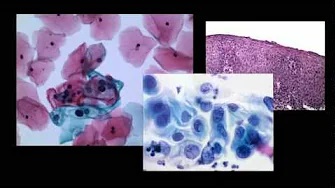Document Type
Article
Publication Date
3-26-2020
Abstract
Anthracyclines used in the treatment of acute myelogenous leukemia (AML) inhibit the activity of the mammalian topoisomerase II (topo II) isoforms, topo II α and topo IIβ. In 230 patients with non-M3 AML who received frontline ara-C/daunorubicin we determined expression of topo IIα and topo IIβ by RT-PCR and its relationship to immunophenotype (IP) and outcomes. Treatment outcomes were analyzed by logistic or Cox regression. In 211 patients, available for analysis, topo IIα expression was significantly lower than topo IIβ (P < 0.0001). In contrast to topo IIα, topo IIβ was significantly associated with blast percentage in marrow or blood (P = 0.0001), CD7 (P = 0.01), CD14 (P < 0.0001) and CD54 (P < 0.0001). Event free survival was worse for CD56-negative compared to CD56-high (HR = 1.9, 95% CI [1.0-3.5], p = 0.04), and overall survival was worse for CD-15 low as compared to CD15-high (HR = 2.2, 95% CI [1.1-4.2], p = 0.02). Ingenuity pathway analysis indicated topo IIβ and immunophenotype markers in a network associated with cell-to-cell signaling, hematological system development/function and inflammatory response. Topo IIβ expression reflects disease biology of highly proliferative disease and distinct IP but does not appear to be an independent variable influencing outcome in adult AML patients treated with anthracycline-based therapy.
Recommended Citation
Michelson AP, McDonough S, Willman CL, Koegle ER, Godwin JE, Petersdorf SH, List AF, Othus M, Appelbaum FR, Radich JP, Ganapathi MK, Advani AS, Ganapathi RN. Association of immunophenotype with expression of topoisomerase II α and β in adult acute myeloid leukemia. Sci Rep. 2020 Mar 26;10(1):5486. doi: 10.1038/s41598-020-62345-9. PMID: 32218491; PMCID: PMC7099013.

